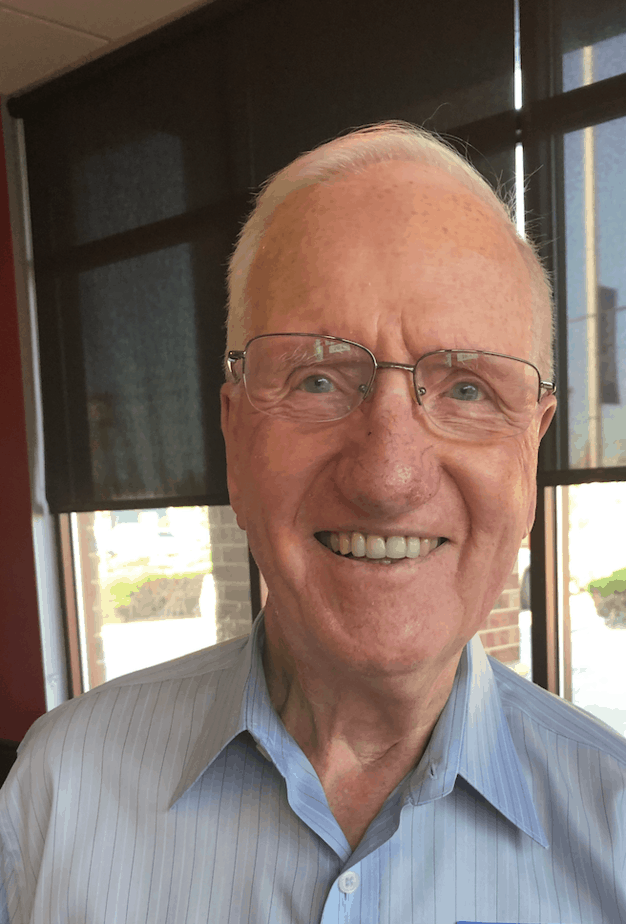Bridgeview – When Gerhard Haigis was ten years old, he learned how to dodge bullets firing down on his boyhood town in Germany.

It was 1945, and the older boys taught Gerhard to lie in the ditch on same side as the direction from which British fighters were attacking. It was a part of surviving in the heart of a world war.
“We learned how to survive in very tough times,” Haigis said. “We were hungry much of the time. But I learned very early in life that education is very important.”
Haigis said he clearly remembers entering his school building where above the door in German were the words, “Knowledge is power.”
The founder and CEO of Gerhard Tool & Manufacturing went on to get a liberal arts high school education in Germany, but immediately went into learning tool making. At age 21, he came to America as a tool master craftsman and sought work in the Chicago area. He decided to start his own business.

“I had no money to start with, but I knew I could do the job I saw others doing,” he said. “I went to six banks, and couldn’t raise a cent. A friend loaned me some money, which I paid back, and started the company.”
Haigis said he was always focused on high precision work, and that’s what kept him going through the hard times.
Now 78, Haigis has lived through dramatic changes in tool making over the past six decades. When he first started his company, computers were unimaginable. Today, they’re not only common, they’re a necessity in making tools and parts clients demand.
“Now time is valuable,” Haigis said. “The faster a job can get done, the more production, the more product, the more money a company can make. Our job is to help our customers make money and meet their demands.”
When Haigis began making parts for aluminum can companies in the late 50s, most companies were happy to fill 50 cans a minute.
“Today, over 4000 soda cans can be filled in one minute,” he said. “And the cans themselves are very different. In the middle section of a soda can, the aluminum is as thin as one of your hairs.”
Haigis says that his company led the way with the idea of coating the bottom rim of an aluminum soda can so that when the lightweight cans are being filled, they stay upright.
“If a soda can turns over, it begins a domino effect, and one after another the cans turn over, the product is lost, and most importantly, time and money is lost.”
But that’s not all it takes to drink soda from a can, he said.
“The top of the cans have to be formed just right with the correct material density to pop off those tabs.”
Haigis’ love for his company and work is clear as he talks about it.
One day in the early 1980s, a company came to Haigis and asked him to build a large number of high precision machines. Haigis wanted the job, but his company’s facility just wasn’t large enough to meet their demands.
So he set out to expand.
“When I built the first half of this in 1983, people thought I was nuts,” he said. First he built a 20,000 square foot building in Bridgeview, then another 13,000 square feet addition three years later.
Haigis said he doesn’t have a salesman on staff. There’s plenty of work without aggressively seeking it.
“This industry is getting smaller and smaller while we get more and more work,” he said. Gerhard now sends their products to every continent on the globe.
But there are difficulties in running a company and government regulations are making it more and more difficult. While he owes his success to the American way of life and ingenuity, he says that the government and taxes discourages more business growth.
“America has done nothing to help the small businessman, even though the small businessman is the backbone of the country,” Haigis said.
Between taxes and real estates taxes, his German sister’s husband says he can’t believe how much he pays in taxes.
And the government sometimes makes promises it doesn’t keep. For instance, Haigis was told that his solar panel coating research and development would produce tax credits. Despite his careful recordkeeping, “I got nothing,” Haigis said.
All the while, he hears of new businesses moving into Illinois and paying no taxes for ten years. “That’s not fair to those of us who’ve been paying our fair share for years,” he said.
It’s something he’d like to see changed.
One report puts Gerhard Tool and Manufacturing’s revenue at $5 million plus for 2012. But finances are something Haigis is uncomfortable talking about.
“It’s not right to ever boast,” Gerhard said.
And no one person should get credit for success, he said, using Germany’s World Cup champion soccer team as an example.
“Argentina had better players, but Germany had a better team, and they won,” he said. “It’s teamwork that makes success.”
Haigis says that while he’s very pleased with his company and his team, he’s always looking for ways to improve.
“Every day I look for something we can make better, there’s a new challenge,” Because of that, Haigis says he plans to keep working.
It’s that unforgettable sound of British flyers overhead and that gnawing sensation of being very hungry that influences his work ethic.
“I feel great, I love to come to work,” he said. “I’ve got ideas for new projects, and I intend to keep on working as long as I can.”
First published in TMA’s August 2014 News Bulletin. By Fran Eaton.


